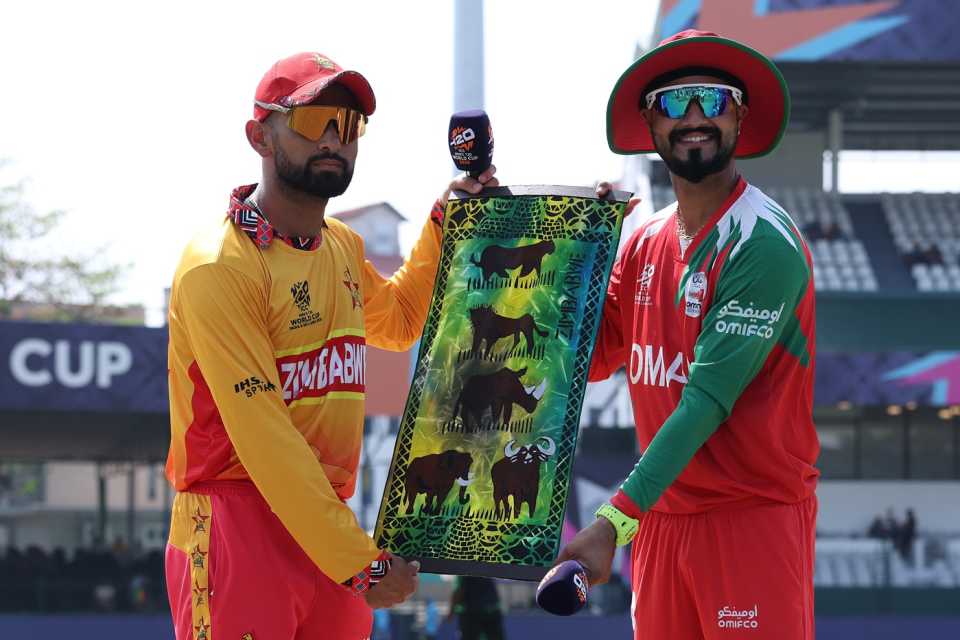Sports
An American hurdling for Sri Lanka at Olympics

Waiting for the next Olympic hurdler – Part IV
by Reemus Fernando
In the year 2012, the US had more than dozen female athletes who had run the 400 metres hurdles faster than the IAAF qualifying standard (both ‘A’ and ‘B’) for the London Olympics. The ‘B’ grade qualifying standard was 56.65 seconds. While the countries like Sri Lanka were struggling to qualify athletes for Olympics, the US had a surplus. In fact, in hurdling, the whole of Asia had only three female athletes, the Japanese pair Satomi Kubokura (55.34) and Sayaka Aoki (56.62) and the Chinese Xiaoxiao Huang (56.58), who had run the discipline under the qualifying mark in 2011. By the end of July 2012, six others had managed to run under the ‘A’ and ‘B’ grade standards for Olympics from Asia. During the Olympic qualifying period, the fastest performance of Christine Merrill, born in Bakersfield, a city in Kern County, California was 56.83 seconds. Even achieving an ‘A’ grade qualifying standard does not guarantee a place in the US team for the Olympics. US athletes have to face a trial as there is an excess of qualified athletes to select from.
When more than dozen qualified US hurdlers who could not punch their ticket to the 2012 Olympics were watching the London Olympics on TV back in the US, Christine Merrill took the starters orders in the women’s 400 metres hurdles heats at the London Olympic Stadium. However, neither her name nor her country’s was announced before the race. When she completed the race, last in the fifth heat, she became the first female athlete to have represented Sri Lanka in the 400 metres hurdles at an Olympics. It was not that someone had illegally taken her to the Olympic Village. It all became possible because of her mother’s Sri Lankan origin.
With its massive TV viewer strength, the US has a huge influence when deciding disciplines of the Olympics. The women’s 400 metres hurdles made its debut when the US hosted the Games for the third time in Atlanta in 1984. Six editions after the women’s 400 metres hurdles made its debut Sri Lanka made its namesake first female representation in the 400 metres hurdles in London in 2012. It all became possible because Sri Lanka Athletics had started to look outside for formidable athletes of Sri Lankan origin to form teams for international events. Merrill also represented the country at the 2011 World Championships and also made herself available for championships held in Sri Lanka. A year after her Olympic representation she clocked 56.45 at a competition in the USA. It is the current Sri Lanka national record. Had she not made herself available for Sri Lankan representation by 2011, probably the country would have given its Olympic wildcard to a locally grown sprinter Chandrika Subashini who had clocked 52.52 seconds in the 400 metres flat event in 2011. Subashini was placed fourth at 2011 Asian Championship in Kobe. Later she was elevated to silver medal position after initial gold and silver medallists Kazakhstan’s Olga Tereshkova and Iraq’s Gulustan Ieso, were disqualified after testing positive for banned substances.
Not many have persevered in the 400 metres hurdles in the women’s category at the senior level. Lack of competition has produced sub-standard performances at the national level. Nimali Liyanarachchi who is representing Sri Lanka at the Tokyo Olympics once tried her luck in this discipline clocking 60.85 seconds. While the country’s national record in the women’s 400 metres is held by a US citizen, the country’s national championship record of that discipline is held by a British national, Selvagowry Retchakan. Selvagowry’s National Championship record of 57.5 secs (hand timing) is 30 years old now.
Selvagowry emerged as a future prospect for Sri Lanka from Chandikulam Balika. She represented Sri Lanka at the Asian Games in 1982. But she developed as a force to be reckoned in world athletics only after she moved to the UK. When she took part in the 1992 Barcelona Olympics, where she ran her lifetime best of 54.63 seconds over the 400 metres hurdles, she was representing the UK. She won two world level medals for the UK when she finished second in the 400 metres hurdles at the 1998 Kuala Lumpur Commonwealth Games and the1992 IAAF World Cup in Havana.
Latest News
Muzarabani returns as Zimbabwe opt to bowl against Oman

Zimbabwe captain Sikandar Raza decided to field first against Oman in the men’s T20 World Cup match at the SSC in Colombo. Both teams were pleased to arrive in Sri Lanka early to get themselves attuned to the conditions.
Zimbabwe have Blessing Muzarabani back in the squad after he missed the tri-series in Pakistan in November.
Oman, meanwhile, include 44-year-old Aaamir Kaleem the oldest player in the tournament – after he came into the side in place of Hasnain Shah, who was injured after the squad was named.
Zimbabwe return to the tournament after missing out on the previous edition in West Indies and the United States of America. They had made it to the Super 12s of the 2022 T20 World Cup but failed to progress through the qualifiers for the 2024 tournament. They completed qualification alongside Namibia; Brian Bennett was the tournament’s top run-scorer, while Brad Evans and Richard Ngarava were among the leading wicket-takers.
Zimbabwe are bolstered by the return of Graeme Cremer, whose November 2025 comeback marked the longest gap between T20I appearances.
Oman are one of three qualifiers from the Asia-Pacific region, alongside Nepal and the UAE. They have previously appeared in the 2016, 2021, and 2024 editions of the T20 World Cup.
Oman: Jatinder Singh (capt), Aamir Kaleem, Hammad Mirza, Wasim Ali, Karan Sonavale, Jiten Ramanandi, Vinayak Shukla (wk), Sufyan Mehmood, Nadeem Khan, Shah Faisal, Shakeel Ahmad
Zimbabwe: Brian Bennett, Tadiwanashe Marumani, Dion Myers, Brendan Taylor (wk), Sikandar Raza (capt), Ryan Burl, Tashinga Musekiwa, Brad Evans, Wellington Masakadza, Richard Ngarava, Blessing Muzarabani
Latest News
Munsey and Leask spoil Italy’s T20 World Cup debut2

Scotland may have suffered a blip the last time they faced Italy in a T20I but ensured they picked up the first points of their 2026 T20 World Cup campaign after a dominant performance at Eden Gardens. George Munsey’s 54-ball 84, supported by cameos from Brandon McMullen and Michael Leask, followed by Leask’s four-wicket haul helped Scotland spoil Italy’s debut in the tournament. The 73-run win gave Scotland two points after their defeat to West Indies in Kolkata two days ago.
Brief scores:
Scotland 207 for 4 in 20 overs (George Munsey 84, Michael Jones 37, Brandon McMullen 41, Richie Berrington 15, Michael Leask 22*; Ali Hasan 1-21, Grant Stewart 1-44, Thomas Draca 1-37, JJ Smuts 1-38) beat Italy 134 in 16.4 overs (Anthony Mosca 13, JJ Smutts 22, Harry Manenti 52; Michael Leask 4-17, Brad Currie 1-12, Brad Wheal 1-29, Mark Watt 2-24, Oliver Davidson 1-33 ) by 73 runs
(Cricinfo)
Latest News
Italy captain Wayne Madsen injures shoulder in T20 World Cup opener

In an inauspicious start to Italy’s maiden T20 World Cup campaign, their captain Wayne Madsen dislocated his shoulder in the fourth over of Scotland’s innings at #den Gardens. He was later ruled out of any further participation in the match.
Madsen was fielding at midwicket when he tried to stop a pull from George Munsey. He unsuccessfully dived to his left and rolled over on the practice pitches and immediately asked for medical attention. He soon left the ground using a towel as a sling for his left arm.
Madsen, by far Italy’s most experienced cricketer at age 42, is playing his maiden T20 World Cup and was taken for X-rays right away at the venue. A typical shoulder dislocation can take anywhere between seven to 21 days for full recovery while more serious cases can take three to four months.
In Madsen’s absence, Italy were captained by Harry Manenti for the remainder of Scotland’s innings. Scotland went on to score 207 for 4 after they were sent in to bat.
While serious injury replacements are being trialled by cricket boards in India and Australia in domestic cricket, there are no injury replacements in the playing XI allowed in international cricket. At the moment, replacements are allowed only if players suffer concussion.
Madsen was appointed Italy captain for the 2026 T20 World Cup after Joe Burns was not selected for the tournament. This World Cup is his second across sports; he also represented South Africa in the men’s hockey in the 2006 World Cup.
After the game against Scotland in Kolkata on February 9, Italy play Nepal in Mumbai on February 12, and then travel back to Kolkata to play England on February 16 and West Indies on February 19.
( Cricinfo)
-

 Features2 days ago
Features2 days agoMy experience in turning around the Merchant Bank of Sri Lanka (MBSL) – Episode 3
-

 Business3 days ago
Business3 days agoZone24x7 enters 2026 with strong momentum, reinforcing its role as an enterprise AI and automation partner
-

 Business7 days ago
Business7 days agoSLIM-Kantar People’s Awards 2026 to recognise Sri Lanka’s most trusted brands and personalities
-

 Business2 days ago
Business2 days agoRemotely conducted Business Forum in Paris attracts reputed French companies
-

 Business2 days ago
Business2 days agoFour runs, a thousand dreams: How a small-town school bowled its way into the record books
-

 Business2 days ago
Business2 days agoComBank and Hayleys Mobility redefine sustainable mobility with flexible leasing solutions
-

 Business7 days ago
Business7 days agoAPI-first card issuing and processing platform for Pan Asia Bank
-

 Business3 days ago
Business3 days agoHNB recognized among Top 10 Best Employers of 2025 at the EFC National Best Employer Awards













